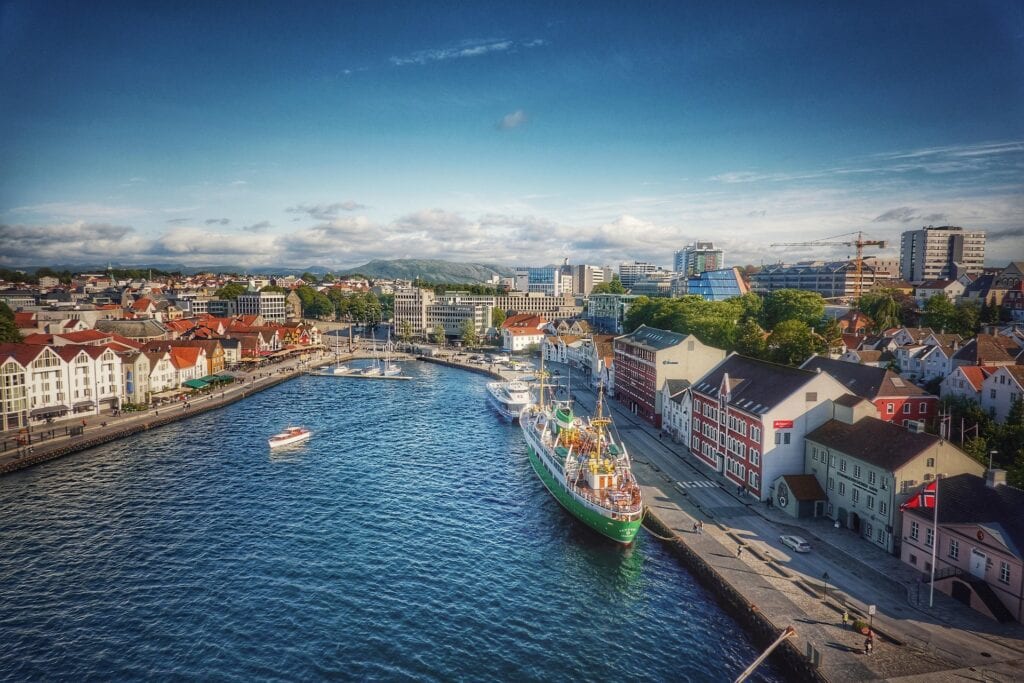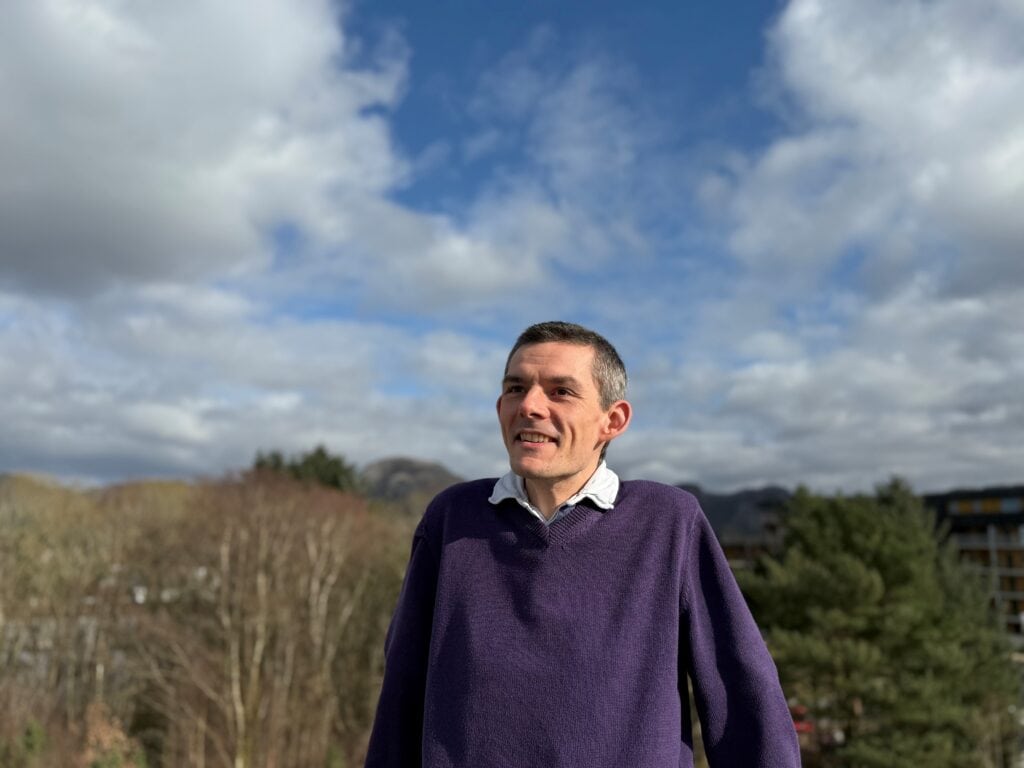We sat down with Rob to hear about his experiences so far—how he’s adjusting to Norwegian life, what’s different about private practice, and what has surprised him most about the job and his new home.
From Public to Private Sector
Rob’s background is in physics, and his time at the UK IPO saw him working on a wide range of technologies. “It was a real mix,” he says. “Some days, I’d be looking at AI and quantum computing, other days it was bicycle lights, jet engines, or even tools like hammers and screwdriver handles.”
One of his more memorable projects was working on prosecuting a patent application for the UK’s polymer banknotes. “It was interesting because it was something I could see in everyday life,” he explains. “I read news articles about the ‘secret security technology’ in the notes, but the funny thing was, the patent documents were freely available for anyone to read!”
However, despite the variety, enforcing patent rules could take its toll. “We were telling people ‘We can see you’ve worked really hard on this and it’s a really cool idea, but I’m sorry, it just can’t be patented.’ We were sort of crushing dreams all the time, especially on computer implemented inventions.”
That was one of the reasons he decided to move into private practice. “Now, instead of just rejecting applications, I’m helping inventors figure out the best way to protect their ideas,” he explains. “I also like the fact we’re also realistic—if something isn’t patentable, we tell clients straight away rather than wasting their time.”
Adapting to Life in Norway
Moving to a new country brings inevitable cultural adjustments. Before arriving, Rob had heard that Norwegians could be reserved. “People told me Norwegians were private, reserved, and not very social,” he says. “But honestly, that hasn’t been my experience at all.” From colleagues to shop assistants, he’s found people in Stavanger to be open and welcoming. “Everyone’s been incredibly friendly. People go out of their way to help, whether it’s in the office or just in everyday life,” he says. “I think Norwegians might actually be more open with foreigners than they are with each other.”
One of the biggest cultural differences he’s noticed is the level of trust in Norwegian society. “My neighbour leaves their bike unlocked outside their apartment, and it’s still there six months later,” he says. “I mean, that’s just unheard of in the UK.”
Some aspects of Norwegian life have required an adjustment, though. “The strict opening hours caught me off guard,” he admits. “I used to do my grocery shopping on Sunday mornings because it was quiet. Now, that’s not an option,” he says. “Everything is shut. You have to plan ahead, or you’ll end up at 7-Eleven buying a coffee and a doughnut for dinner.”
The same goes for alcohol sales. “Supermarkets stop selling beer at 8 p.m. on weekdays and 6 p.m. on Saturdays. And if you want wine or spirits, you have to go to Vinmonopolet, the state-run liquor store, which closes even earlier,” he says. “You definitely have to be more organized.”
Life in Stavanger
Stavanger is roughly the same size as Newport, Wales, where Rob lived before moving to Norway, but he’s found the two cities to be quite different. “Stavanger is much more spread out,” he says. “It doesn’t have that dense, built-up feel you get in a lot of UK cities.”

The city’s integration with nature has been a highlight. “I can walk five minutes from my apartment and be in a forest or by a lake. It’s great,” he says. “And the views—every morning, I look out my window and see snow-capped mountains. Well, Norwegians call them hills, but they look like mountains to me.”
Even day-to-day transport is different. “There’s less of a rush-hour feel. And people actually stop for pedestrians,” he laughs. “In the UK, if you try to cross the road, drivers will speed up. Here, they stop before you’ve even reached the crossing.”
The Learning Curve of Private Practice
On the professional side, the move to private practice has been a significant change. “At the IPO, everything was quite structured—you assessed applications, wrote up your decisions, and that was that,” he explains. “In private practice, every day is different. This morning, I worked on furniture, power tools, and an oil drilling invention, and it’s not even lunchtime yet.”
One of the biggest differences is the direct contact with inventors. “As an examiner, we never spoke to applicants. Here, if I have a question, I can just call them up or set up a quick Teams meeting,” he says. “That’s a big advantage, especially when dealing with complex technology.”
One of the biggest learning curves has been expanding into new technical fields. “When I first started, I thought, ‘Okay, I’ve done AI, I’ve done quantum computing—I’m ready for anything,’” he jokes. “And then I got my first fish farming case.”
Norway’s aquaculture industry is one of the most innovative in the world, and it’s an area Rob had never encountered before. “I didn’t realize how much R&D goes into fish farming,” he says. “You just assume it’s a big net in the sea, but the amount of technology behind it is incredible.”
His background as an examiner has helped him adjust quickly. “At the IPO, you had to get up to speed on new technologies all the time, so I’m used to that. And if I ever need more details, I can just sit down with the inventors and talk it through.”
Looking Back and Moving Forward
So, does Rob have any regrets about making the move? “Not at all,” he says. “I think the timing was right. I could have moved to private practice earlier, but my experience at the IPO has been really useful—especially when it comes to searching and responding to office actions.”
Any advice, then? “Do not – I repeat – do not use the moving firm I used,” he laughs, “But in terms of actual advice, it's a big change. Don't underestimate it, but it's absolutely worth it.”
Norway’s landscapes, its high-trust society, and the variety of work at Håmsø have all made the transition worthwhile. And while he’s still adjusting to the strict shopping hours and alcohol laws, it’s safe to say Rob has found his place in Stavanger.
